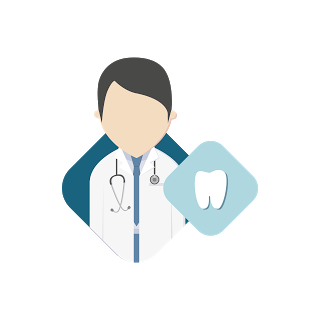What's Difference Between Dds & Dmd? Choosing Right Dentist

When it comes to selecting a dentist, many people are unaware of the differences between the two commonly seen dental degrees: DDS (Doctor of Dental Surgery) and DMD (Doctor of Dental Medicine). While both degrees qualify an individual to practice as a general dentist, there are some subtle differences in the educational background and the focus of their training. Understanding these differences can help you make an informed decision when choosing the right dentist for your needs.
Historical Background The difference between DDS and DMD originates from the historical development of dental education in the United States. In the late 19th century, there were two main dental schools: the Baltimore College of Dental Surgery, which awarded the DDS degree, and the Harvard University School of Dental Medicine, which awarded the DMD degree. Over time, the distinction between the two degrees has become less pronounced, with both degrees being recognized as equivalent by the American Dental Association (ADA).
Education and Training Both DDS and DMD programs involve four years of study after completing a bachelor’s degree. The curriculum for both programs is similar, covering subjects such as anatomy, biochemistry, pharmacology, and clinical dentistry. The difference lies in the emphasis of their training. DDS programs tend to focus more on the surgical aspects of dentistry, while DMD programs place greater emphasis on the medical aspects of dental care.
DDS (Doctor of Dental Surgery) A DDS degree is often associated with a more surgical or mechanical approach to dentistry. Dentists with a DDS degree are trained to perform a wide range of procedures, from routine fillings and extractions to more complex surgeries such as implants and oral reconstruction. DDS programs often have a stronger focus on the technical aspects of dentistry, such as dental materials, orthodontics, and prosthodontics.
DMD (Doctor of Dental Medicine) On the other hand, a DMD degree is often linked to a more medical approach to dentistry. DMD programs place greater emphasis on the connection between oral health and overall health, covering topics such as pharmacology, pathology, and dental anatomy. DMD-trained dentists are equipped to diagnose and treat a wide range of dental conditions, with a focus on preventing and managing diseases that affect the teeth, gums, and surrounding tissues.
Choosing the Right Dentist So, how do you choose between a DDS and a DMD? The truth is, both degrees qualify an individual to provide high-quality dental care. When selecting a dentist, there are more important factors to consider:
- Experience and expertise: Look for a dentist with experience in the specific area of dentistry you need, such as pediatric dentistry or orthodontics.
- Communication style: Choose a dentist with a communication style that makes you feel comfortable and informed.
- Technology and equipment: Consider a dentist who invests in modern technology and equipment to provide efficient and effective care.
- Patient reviews and reputation: Research a dentist’s reputation online and read reviews from previous patients to get an idea of their quality of care.
In conclusion, while there are some subtle differences between DDS and DMD degrees, both qualify an individual to provide high-quality dental care. By focusing on the factors that matter most, such as experience, communication style, and technology, you can find the right dentist for your needs and enjoy a lifetime of good oral health.
What is the main difference between a DDS and a DMD degree?
+The main difference between a DDS and a DMD degree lies in the emphasis of their training. DDS programs tend to focus more on the surgical aspects of dentistry, while DMD programs place greater emphasis on the medical aspects of dental care.
Which degree is better, DDS or DMD?
+Both DDS and DMD degrees are equivalent and recognized by the American Dental Association (ADA). The choice between a DDS and a DMD-trained dentist should be based on factors such as experience, communication style, and technology, rather than the degree they hold.
Can a DDS or DMD perform all types of dental procedures?
+Both DDS and DMD-trained dentists are qualified to perform a wide range of dental procedures, from routine fillings and extractions to more complex surgeries. However, some specialized procedures may require additional training or certifications.